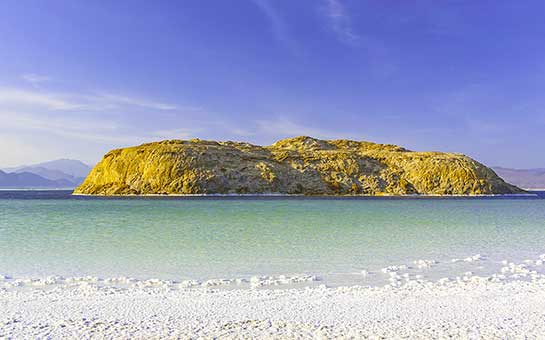Over the years, tourism in the African nation of Djibouti has seen steady growth and not without reason. Sun, sea, sand, mountains, ancient cultures – Djibouti has all this and more. The culture is a blend of Arabic and African. The people are warm and friendly. Life moves at a leisurely pace. All this must have played in your mind when you had planned your trip to Djibouti. You won't regret it, but before you leave, make sure you buy travel insurance to have financial protection against any unforeseen illnesses, accidents or injuries.
Djibouti Trip Cancellation Insurance for International Travelers – FAQs
A multitude of conditions can lead to a trip cancellation—a death in the family of the intended traveler, a last-minute emergency at the office, natural/artificial disturbances at the destination, etc. The fun of the trip is gone even before it began, and on top of that, financial losses stare you in the face.
Why buy trip cancellation insurance for Djibouti?
You must have made many of the payments in advance like flights, hotels, etc. There is a risk of losing all that money, but trip cancellation insurance can guard you against such financial losses. You're eligible for trip cancellation insurance benefits if you have to cancel your trip for a covered reason as listed in your policy's certificate wording. You can receive reimbursement for any prepaid, non-refundable expenses you put down in preparation for your trip.
What does travel insurance cover for Djibouti?
Travel insurance is Dijibouti can cover most of the common reasons for trip cancellations. Do go through the details before selecting the policy to confirm what is and is not covered. But you need to buy Djibouti travel insurance to protect yourself monetarily. Enter some basic travel information, compare a wide variety of plans, and select the one that best matches the needs of your itinerary, your budget, and your destination.
Things to Do for Travelers in Djibouti
Djibouti offers a variety of landscapes for you to look at and admire. It has extinct volcanic mountains, canyons, salt lakes, basalt plateaus, and the wide-open sea. Much of the countryside hasn't seen infrastructure developments on a large scale, so you will get to experience the way of life as it has been for centuries.
Lac Assal
This is a crater lake. It's the lowest point in Africa at 155 meters (about 508 feet) below sea level and also among the lowest in the world. It's the second-saltiest water body on the entire planet. With a salt field bordering it on all sides, the turquoise blue waters present a stunning sight. You might also catch a view of the local herdsmen gathering salt from here.
Plage de Sables Blancs
This stunningly beautiful beach of white sand and black basalt rocks lies near Tadjoura. Spend some relaxing moments on the beach, or head out to the sea to indulge in some snorkeling or kayaking. From October to January, whale sharks visit the Gulf of Tadjoura. With some luck, you might catch a glimpse of these gentle giants.
Lac Abbe
The landscape here, close to the Djibouti-Ethiopia border, is absolutely surreal. You would need an all-terrain vehicle to reach this place. Here, you would get to experience hot water springs and sulfur steaming out of huge rock chimneys. During sunset and sunrise, the scenery is awesome. Spend a night here if you can.
Goba'ad Plain
This place is a treat for everyone, but especially for bird-watchers. Besides an ostrich breeding farm here, you will also come across Sand Grouses, Black Crown Sparrows, Arabian Bustard, and other such exotic avian species. Check out the wadis and the sand flats all around. Spending time here would be time well spent.
Day Forest National Park
The desert surrounds this national park – the oldest in Djibouti. Located in the Goda Mountains, this park is home to the East African Junipers that grow to heights of 25–30 meters (about 82–92 feet). You can spot several endangered bird species here that can't be seen anywhere outside this forest.
Travel Risks for International Travelers in Djibouti
Djibouti is among the safest African nations for international travelers. There is a substantial foreign military presence here that adds to the safety aspect. The local people are helpful and courteous. However, the country is not risk-free, so you should be careful to be on your guard.
- Seismic activity is fairly common in Djibouti, and a large earthquake is waiting to happen. Should you be among the unfortunate souls caught in such a disaster, follow all the instructions from the relevant authorities.
- Djibouti is a predominantly Islamic country. The local people are conservative but not extremely so. However, don't disrespect local cultures and traditions. Dress in a modest manner, especially in the rural areas of the country.
- There are frequent cases of malaria and dengue in Djibouti. Use mosquito nets at night if possible, and carry mosquito repellent with you at all times.
- Transactions in Djibouti are mostly cash-based due to the limited use of plastic money. Keep sufficient cash with you, but don't keep too much of it for safety issues.

